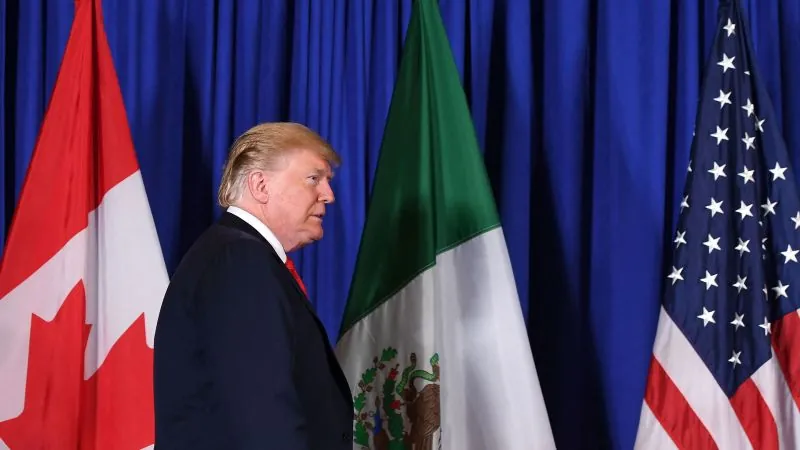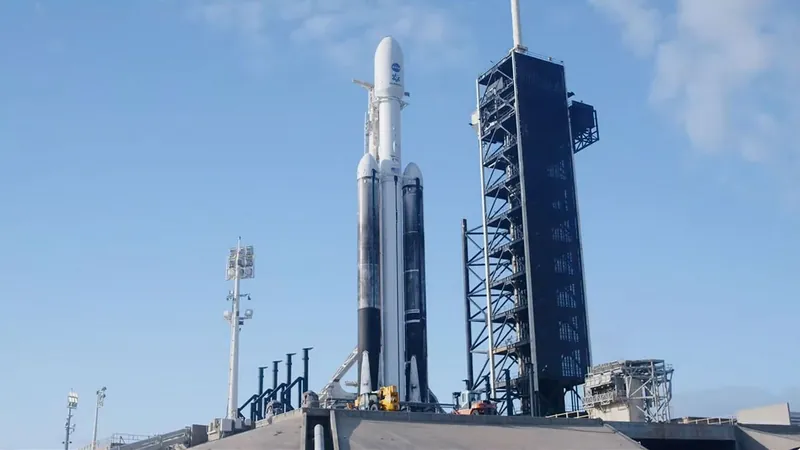
Trump’s Bold Move: Renegotiating the USMCA for a Stronger American Economy!
2024-10-14
Author: Jacques
Trump's New Initiative
Former President Donald Trump is once again thrusting American manufacturing into the spotlight with his ambitious plan to renegotiate the US-Mexico-Canada Agreement (USMCA) in an effort to reclaim jobs and boost economic growth.
Background on USMCA
Initially signed into law in 2018, the USMCA was heralded by Trump as the “most modern, up-to-date, and balanced trade agreement” in U.S. history, replacing the much-criticized North American Free Trade Agreement (NAFTA), which Trump famously denounced as the 'worst trade deal ever made.' However, in a surprising twist, Trump now believes that even his own agreement could use some fine-tuning.
Renegotiation Announcement
“I will formally notify Mexico and Canada of my intention to invoke the six-year renegotiation provision of the USMCA that I put in,” Trump declared during a recent speech at the Detroit Economic Club. This clause allows for a review and renegotiation of the agreement after six years, providing an opportunity to enhance the terms laid out in 2020.
Focus on the Automotive Industry
In an exclusive interview with Fox News, Trump emphasized his desire to strengthen the deal. 'I want to make it a much better deal. I want to take advantage, now, of the car industry,' he said. This intention reflects ongoing concerns about manufacturing jobs and the resilience of the automotive industry, which have faced challenges from both domestic shifts and international competition.
Bipartisan Interest in Revising USMCA
Interestingly, Trump is not the only one seeking to utilize this review process. Vice President Kamala Harris, now the Democratic presidential nominee, previously opposed the USMCA, citing insufficiencies in protecting U.S. workers and environmental standards. She has stated her intention to leverage the USMCA review framework to ensure more robust protections are in place.
Notable Changes Made by USMCA
Despite the controversy, the USMCA introduced significant changes compared to NAFTA, including a requirement for a higher percentage of vehicle parts to be produced in North America—rising from 62.5% to 75%—to qualify for tariff-free status. It also mandated that a greater number of vehicle parts be manufactured by workers earning at least $16 an hour, addressing concerns about fair wages in the industry.
Impact on Digital Economy and Environmental Standards
Moreover, the trade agreement made strides in the digital economy, incorporating provisions for digital trade that previously lacked in NAFTA, thus offering new economic opportunities. Nonetheless, critics argue that the environmental regulations need further enhancement to effectively tackle climate change.
Looking Ahead
As Trump prepares to enter a new chapter in his political career, the move to renegotiate the USMCA may garner significant attention during the campaign trail, as both parties grapple with economic resilience and job creation in a post-pandemic landscape. Will Trump’s new approach to the USMCA be a game-changer for American workers? Only time will tell!









 Brasil (PT)
Brasil (PT)
 Canada (EN)
Canada (EN)
 Chile (ES)
Chile (ES)
 España (ES)
España (ES)
 France (FR)
France (FR)
 Hong Kong (EN)
Hong Kong (EN)
 Italia (IT)
Italia (IT)
 日本 (JA)
日本 (JA)
 Magyarország (HU)
Magyarország (HU)
 Norge (NO)
Norge (NO)
 Polska (PL)
Polska (PL)
 Schweiz (DE)
Schweiz (DE)
 Singapore (EN)
Singapore (EN)
 Sverige (SV)
Sverige (SV)
 Suomi (FI)
Suomi (FI)
 Türkiye (TR)
Türkiye (TR)